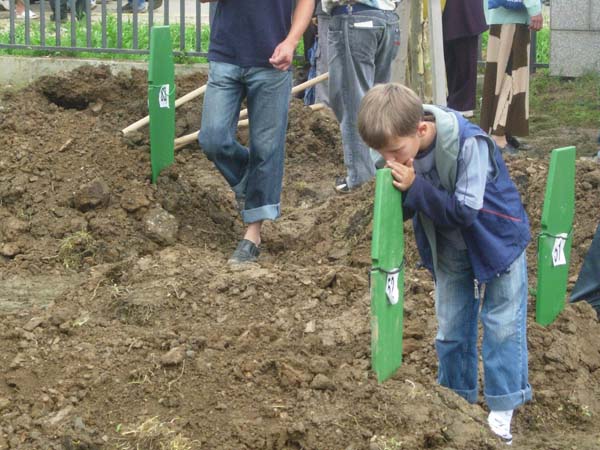
A boy at a grave during the 2006 funeral of genocide victims at the Srebrenica-Potočari Memorial Center. Photo Credit: Emir Kotromanić
Twenty years on, one of the largest massacres in Europe since World War II continues to spur controversy, now threatening to further divide Russia and the West.
The event in question is the Srebrenica massacre — the systematic killing of over 8,000 Bosniak men and boys in and around Srebrenica in July 1995 during the Bosnian War. Srebrenica, which had been declared a “safe area” under the protection of U.N. peacekeeping units, was stormed by the Bosnia Serb Army (VRS) in the afternoon of July 10, 1995. At the time, U.N. officers in the region put out an urgent call to stop the VRS from overrunning the town. Despite repeated requests, NATO did not attempt to provide air support until July 11. Without substantial assistance, the VRS was able to drive out the U.N. peacekeepers and Dutch forces stationed there and seize the town, killing thousands.
Ten years later, U.N. secretary-general Kofi Annan called it “the worst [crime] on European soil since the Second World War.”
Still, whether or not the event should be classified as a genocide continues to be a major point of contention for a number of countries, including some of Serbia’s closest allies. That controversy has reignited over Russia’s veto of a recent U.N. resolution put forward to the U.N. Security Council for a vote on Wednesday. The resolution would have formally recognized the massacre as a genocide on the eve of its 20th anniversary.
Vitaly Churkin, Russia’s ambassador to the U.N., accused the resolution of being “not constructive, confrontational and politically-motivated.” He further argued that the text, at least as it stands now, would “doom the region to tension” because it singled out war crimes committed by Bosnian Serbs.
But a number of Western diplomats have taken issue with Churkin’s characterization of the resolution, particularly because the vote had actually been delayed in order for British, American and Russian diplomats to come to a compromise on some of the language.
“We had very, very close contact with the Russians throughout all of this. Indeed, we would’ve held this debate yesterday — we postponed it for a day in order to allow for last-minute consultations with the Russians to try and get the widest support possible for this resolution,” Peter Wilson, the U.K. ambassador deputy permanent representative to the U.N., told the BBC.
“People recognize that you can’t make progress in the way that Bosnia-Herzegovina needs to make progress if you don’t recognize what happened in the past.”
Samantha Power, the U.S. ambassador to the U.N., took an even more aggressive stance, saying, “Russia’s veto is heartbreaking for those families and it is a further stain on this Council’s record.”
“This Council did everything in its power to get Russia on board with this simple resolution that did not even name the perpetrators. But Russia had a red line; the resolution could not reference the genocide in Srebrenica. It could not reference a fact.”
These diplomatic efforts aside, Russia’s veto is not tremendously surprising. Russia and Serbia are close allies. Both Putin and Medvedev have repeatedly backed Serbia’s condemnations of Kosovo’s independence, calling its efforts “immoral and illegal.” Still, with Serbia sniffing out a possible EU membership, Russia does have some cause for concern. It has seen other former Soviet satellite states fall out of its sphere of influence and gravitate toward the West. Fears of Serbia doing the same are not unfounded. Backing Serbia and its narrative about Srebrenica (Serbia denies the killings were genocidal in nature) is one way to try and keep the country in Russia’s orbit.